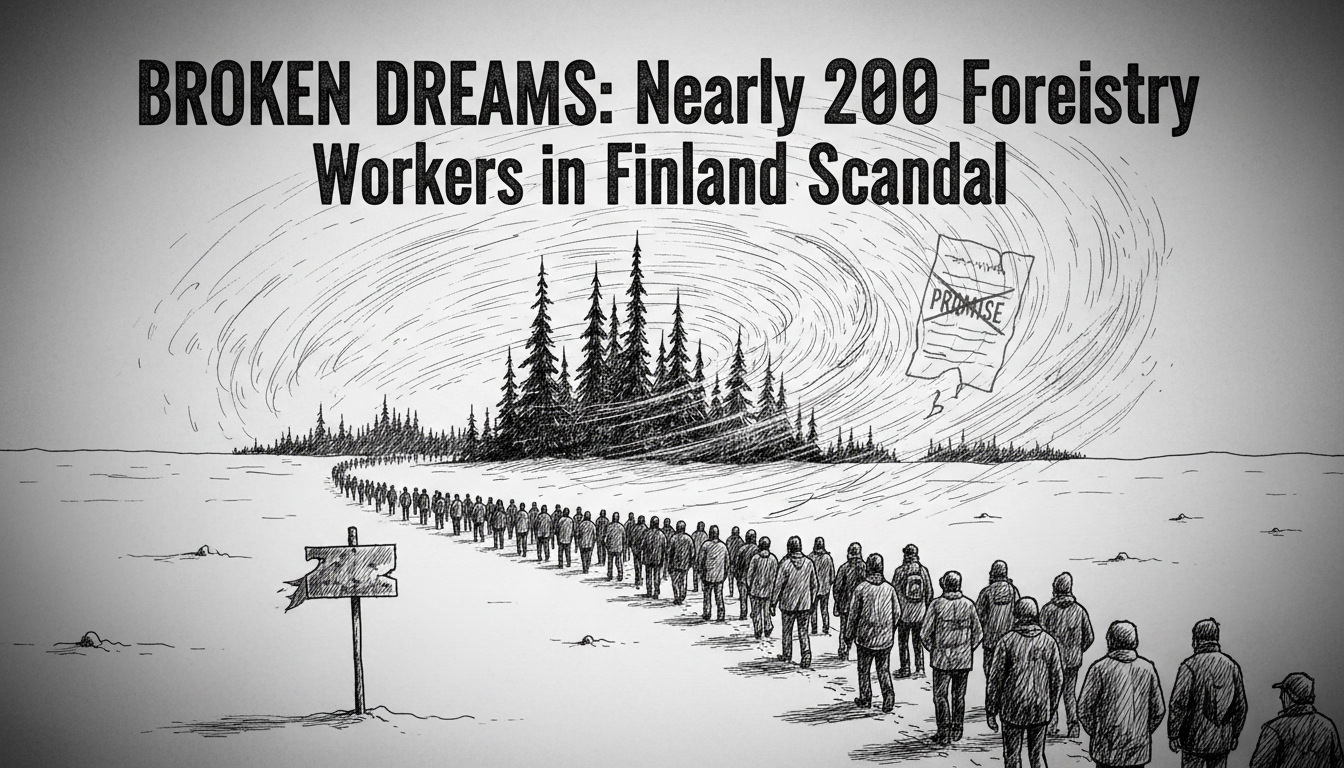Finnish authorities are investigating what could become one of the country's largest human trafficking cases involving foreign forestry workers. Officials suspect nearly 200 Nepali workers were brought to Finland using fraudulent information. The workers report facing harsh conditions and broken promises about their employment.
A Ukrainian man allegedly collaborated with Nepali recruiters to lure workers to Finland. They promised good forestry jobs but delivered difficult conditions instead. One company brought the workers to Finland, and a Finnish woman co-owns this company.
More than fifty people are already identified as suspected victims of crime in this case. Workers told investigators they never even saw logging equipment before arriving in Finland. Some showed photos of exhausted colleagues resting in forests during their limited breaks.
The case exposes vulnerabilities in Finland's seasonal worker system. Nordic countries typically maintain strong worker protections, but this incident reveals gaps in monitoring foreign labor recruitment. Finland has strict laws against human trafficking, yet this scheme apparently operated for some time before detection.
What does this mean for Finland's international reputation? The country consistently ranks high in global anti-corruption and human rights indexes. This case could challenge that perception and prompt stricter oversight of labor import programs. Authorities now face pressure to protect victims while ensuring accountability for those responsible.
Similar labor exploitation cases have emerged across Scandinavia in recent years. Norway investigated fishing industry abuses, while Sweden examined construction sector violations. This pattern suggests organized groups are targeting Nordic countries despite their strong worker protections. The high standard of living in these nations makes them attractive destinations for vulnerable workers.
Finnish border guards continue investigating the network behind this operation. They're examining how the recruitment process bypassed standard checks and what role each participant played. The case highlights ongoing challenges in balancing open labor markets with worker protection in the Nordic region.

